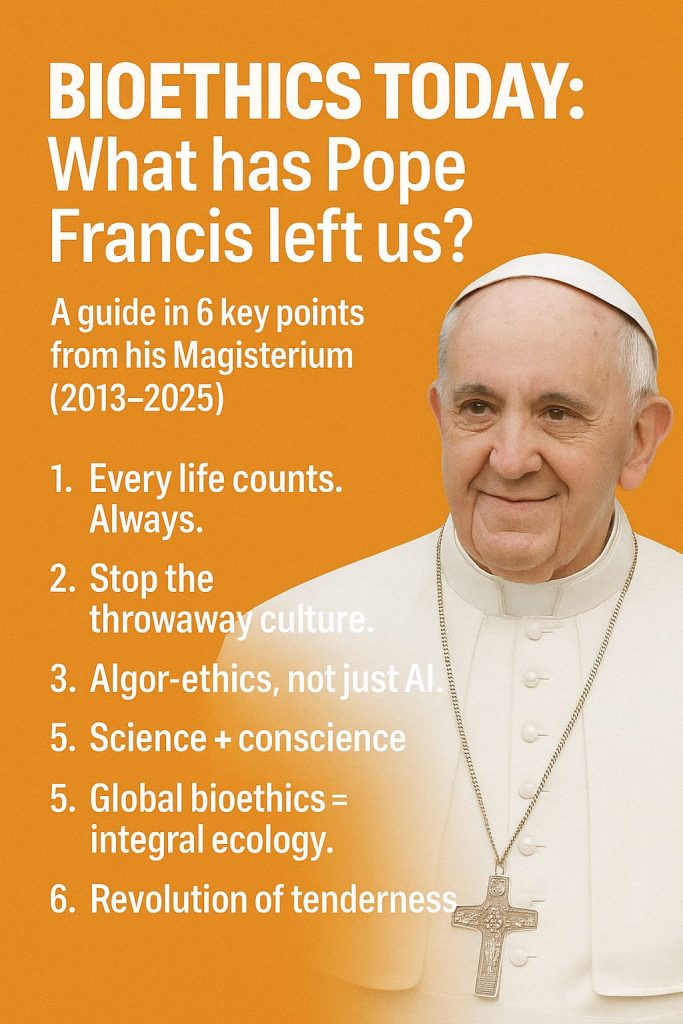The Legacy of the Bioethical Magisterium of Pope Francis (2013-2025)

Prof. P. Alberto Carrara, LC, Dean of the Faculty of Philosophy and Director of the Research Group in Neurobioethics (GdN) at the Pontifical Athenaeum Regina Apostolorum, Member of the Pontifical Academy for Life (PAV), President of the International Institute of Neurobioethics (IINBE), among the world experts in neuroethics of the International Neuroethics Society (INS) and Founding Member of the International College of Neuroethics and Neuroscience (ICONN) dedicates and recounts the profound and prophetic legacy of the bioethical Magisterium of Pope Francis.
Below is an excerpt from his document:
“With the recent passing of Pope Francis, the Church and the entire world find themselves reflecting on the profound and prophetic legacy of his magisterium. Among the most significant contributions of his pontificate is the renewal, starting in 2016, of the Pontifical Academy for Life, which he relaunched as a cultural laboratory and a place for interdisciplinary dialogue on the great challenges of our time. In an era marked by rapid medical-scientific and technological transformations, Pope Francis promoted an increasingly global and relational bioethics, capable of integrating the care of human life with attention to social justice, inequality, ecology, and the ethical governance of innovation.
This reconstruction intends to offer a chronology from 2013 to 2025, focusing in particular on his interventions at the Pontifical Academy for Life, highlighting the guiding threads, thematic developments, and main doctrinal novelties. It is a way to reread, in light of his passing, the anthropological and spiritual vision that inspired his bioethical magisterium: a vision capable of humanizing technology, of recognizing every life as sacred, and of responding to the new challenges of robotics, algorithm ethics, and neuroethics with evangelical wisdom and global responsibility.”




